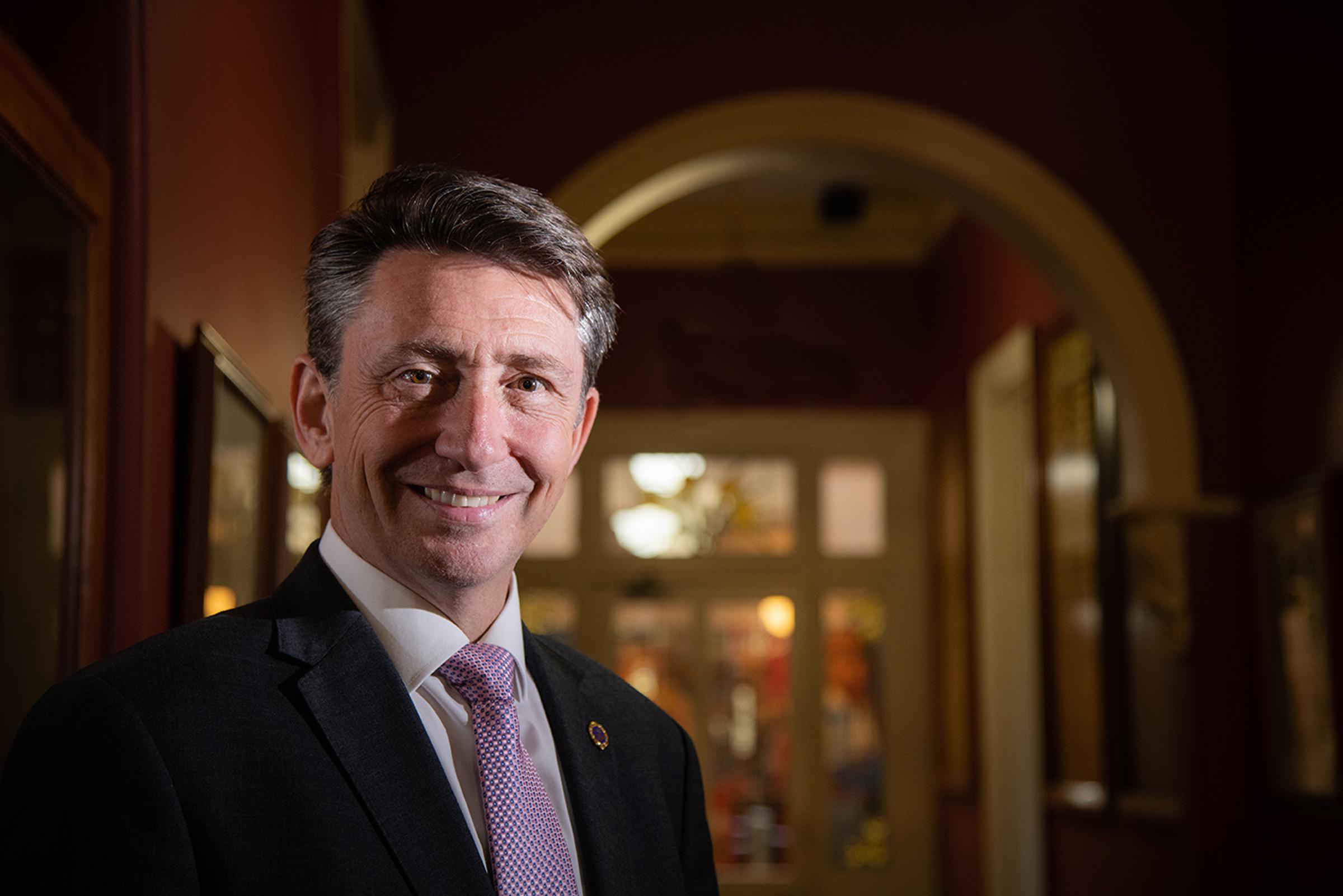Headmaster's
Message

Headmaster's
Message
Feedback is certainly a gift for those of us focused on being the very best version of ourselves and contributing to making our School the very best it can be. What better way to discover the areas in which we ought to improve so that we can provide better experiences for School families and facilitate better learning for our students?
As I mentioned several times last term in Pulse, schools are required to demonstrate that they provide a safe and supportive environment for their staff, students and parents. This requires schools to have a range of policies pertaining to enrolment, safety, student wellbeing, child protection, student attendance, student behaviour management, making complaints, appealing decisions, as well as the prevention and management of harassment. The policies relevant to parents of our School are available on our website, nonetheless, it is crucial that we highlight the salient points from each from time to time.
The School is thoroughly committed to the highest standards of ethics as one of the key foundations of an harmonious School community. In promoting a culture of trust, the School seeks to be characterised by an openness to feedback, a willingness to admit mistakes and acknowledge where improvements could be made, a preparedness to undertake dialogue on sensitive and difficult matters and a commitment to resolving matters of dispute. Central to this intent is our Complaints and Appeals Policy that I highlight in this article.
The first of these articles, in Pulse 20, titled Our Highest Calling, was about Child Protection. The second, in Pulse 21, titled That is Not OK, was about our approach to mistreatment, harassment and bullying. Parents need not be concerned. We do not have an epidemic of these behaviours. Similarly, we are not flooded by complaints. Of course, we are always responding to feedback and ironing out wrinkles of one kind or another, but on the whole families seem satisfied with the work of my hardworking team.
To respond most effectively to the grievances that do exist, it is important that we capture every complaint. We recognise that students, parents, staff and members of the wider School community will inevitably develop grievances about various matters, especially when the School makes a mistake, which we will from time to time. For harmony to prevail, each of us must do what we can to prevent these grievances from leading to disappointment, bitterness and resentment. The School seeks to protect members of the School community from this possibility, through open communications and the efficient and effective resolution of complaints and appeals.
To assist the School in its efforts and ensure a grievance does not take hold, parents and students are asked to join the BMGS staff team and embrace the following process. Firstly, when grieved, we should ask ourselves whether we have simply got it wrong. Have we misunderstood a situation or a behaviour? If we don’t think we have, we should reflect on the source of the grievance, the role we played, whether the actions of the individual were justified, explicable and/or in character, and whether offense needs to be taken. We should each consider embracing a generosity of spirit that enables us to overlook minor indiscretions, forget the matter and/or forgive the offender. If we decide that our grievance is justified and requires us to act, we should only share it with those directly involved, with persons whose responsibility it is to resolve the matter and, if necessary, a small number of discrete support persons. To include a wider circle of people would be counterproductive and undermine the harmony of our School community, as would sharing our concerns disrespectfully or with heightened levels of emotion.
The School seeks to resolve complaints as close as possible to the source and so we ask parents and students to express their complaints to the person involved or most directly concerned. When this is not possible or not appropriate, complaints should be communicated as follows. Junior School students should tell their Classroom Teacher, who will assist the student with their complaint, or where appropriate, advocate on their behalf. Senior School students should tell their Tutor who may advocate on their behalf, however their priority will be to promote the student’s agency by assisting, supporting and/or coaching them to pursue the complaint for themselves through the appropriate channels and in the appropriate manner. Parents should seek to speak to the person most likely responsible for the matter subject of complaint. Where complaints are about a parent, complainants should go to the relevant Head of School. Where complaints are about a member of BMGS staff, the rule of thumb is to communicate with that person’s supervisor; if about the Head of School, complainants should go to the Headmaster; if about me (the Headmaster), complainants should write to the Chair of the School’s Board of Directors at the School’s postal address. If unsure to whom to direct a complaint, parents may call the office to ask for advice or direct an email to feedback@bmgs.nsw.edu.au.
So, please share with us any grievances that may occur in the future and also consider using any of these channels, including feedback@bmgs.nsw.edu.au , to provide positive feedback to teachers, other staff or the School more generally. With your cooperation, we will continue to work on areas in which we can improve, seek to make errors less frequently and become all that this fabulous School can be.
Go team!
Per Ardua Ad Altiora
Mr Ian Maynard
Headmaster